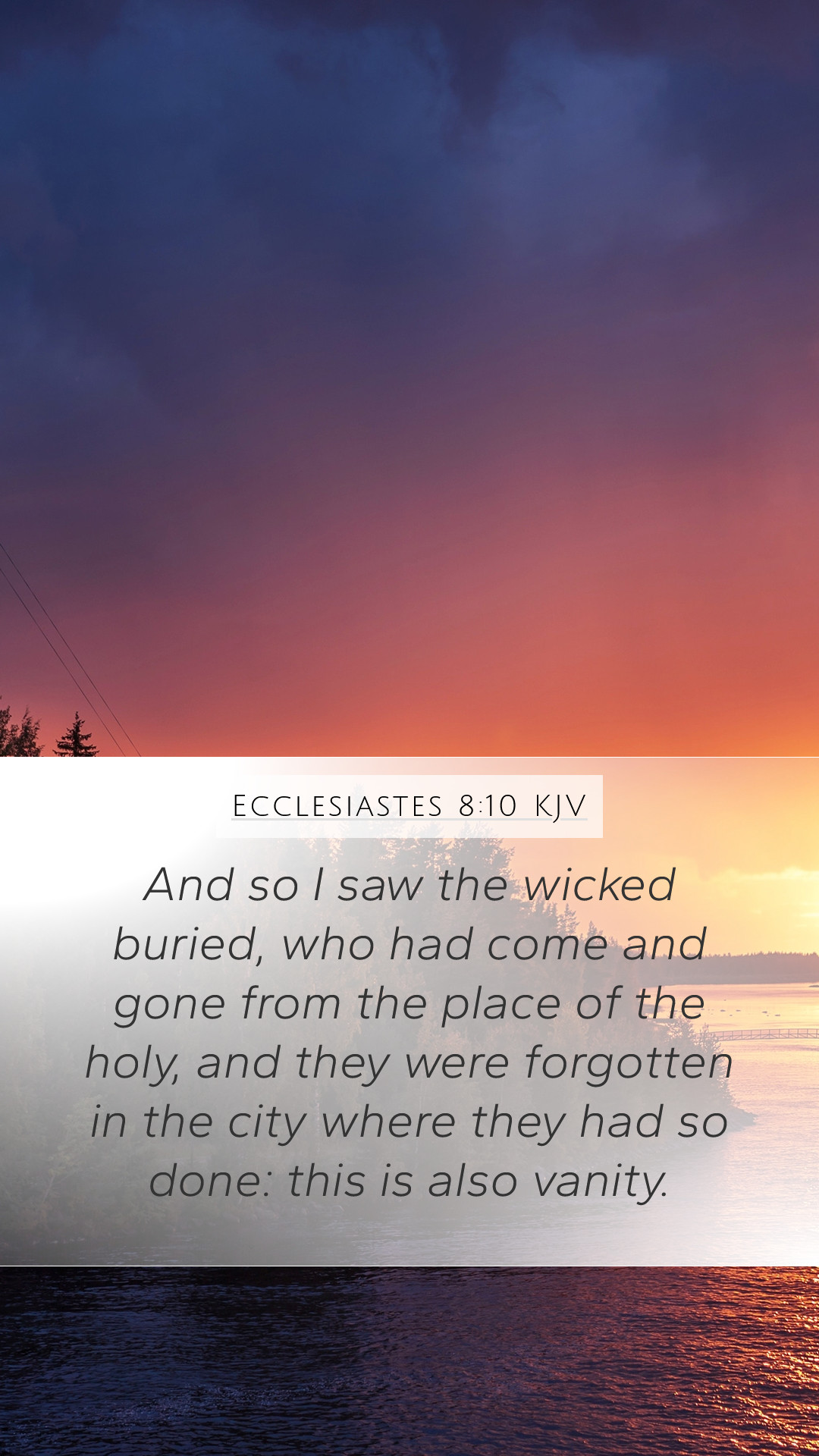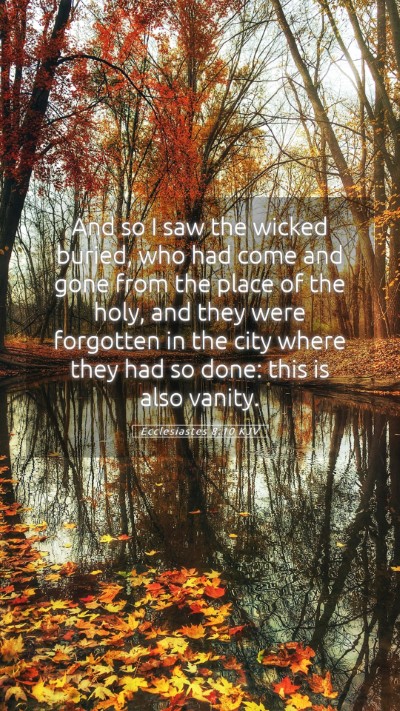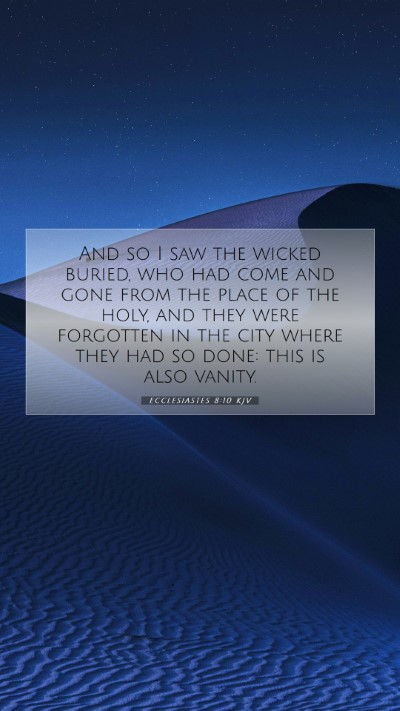Understanding Ecclesiastes 8:10
Ecclesiastes 8:10 states: "Then I saw the wicked buried, who had come and gone from the place of the holy, and they were forgotten in the city where they had so done: this is also vanity." This verse delves into the concept of the seeming prosperity of the wicked and the ultimate vanity of life. Below, we explore the meaning of this verse through insights taken from renowned public domain commentaries by Matthew Henry, Albert Barnes, and Adam Clarke.
Bible Verse Meaning
Ecclesiastes 8:10 provides a reflection on life, death, and the moral outcomes perceived in the earthly realm. The verse highlights the following key themes:
-
The Fate of the Wicked:
The preacher observes that the wicked, despite their unscrupulous actions, receive a burial, and ironically, they are treated with the honor usually reserved for the righteous. This raises questions about divine justice and the consequences of one’s actions.
-
Remembrance and Forgetfulness:
Matthew Henry notes that these wicked individuals may have enjoyed temporary success or recognition, yet they ultimately become forgotten. This signifies the transitory nature of earthly fame and the ultimate impotence of wickedness in achieving true legacy.
-
Vanity of Earthly Pursuits:
The observation of the wicked being forgotten after their deaths encapsulates the essence of the book of Ecclesiastes: the pursuit of earthly pleasures and material gain is ultimately vanity. The vanity reflects the pointless pursuit of life without acknowledgment of its fleeting nature.
Bible Verse Interpretations
The interpretations of this passage emphasize life's inherent inequalities, particularly regarding morality and justice. Albert Barnes discusses how those who do evil may experience outward success while ensuring their downfall in God’s timing. The passage highlights a profound observation regarding life’s inconsistencies.
Historical Context and Related Themes
Understanding Ecclesiastes 8:10 necessitates an awareness of its historical context. The author of Ecclesiastes, often believed to be King Solomon, reflects upon life’s perplexing predicaments while observing human behavior. He addresses the injustices faced by the righteous and the seeming prosperity of the wicked.
Related Themes:
- Human Mortality: All humans face mortality, and the differentiation of how lives are honored or remembered varies.
- Moral Justice: The query into how good and evil receive their due rewards within the frame of time.
- Legacy and Remembering: What constitutes a legacy, and how the world witnesses a life well-lived versus one shrouded in wickedness?
Additional Bible Cross References
- Psalm 49:10-11 - Discusses the fate of the wise and the foolish in death.
- Proverbs 10:7 - Remembers the name of the righteous while the name of the wicked rots.
- Ecclesiastes 3:16-17 - Observations regarding the fate of the wicked and the righteous under the sun.
Conclusion: Applying the Insights from Ecclesiastes 8:10
The implications of Ecclesiastes 8:10 can extend to our lives today. It encourages introspection regarding our actions, motivations, and the legacy we desire to leave behind. For those seeking to delve deeper into scripture, resources such as online Bible study tools, Bible study guides, and lesson topics can serve as excellent avenues to enhance understanding and foster personal growth. Ecclesiastes challenges us to reflect on our moral fabric and ultimately seeks to draw us closer to an understanding of God’s purposes within the chaos of human existence.
As we seek answers to questions about life's injustices and the moral compass that directs us, we are encouraged to remember that spiritual fulfillment transcends earthly accolades, affirming the necessity for truth and righteousness in the life we choose to live.


